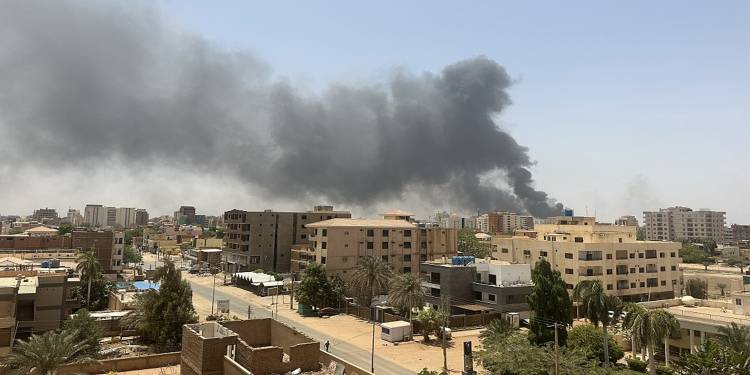
As a result of the relentless fighting that started last week between paramilitary Rapid Support Forces and the Sudanese army in Sudan, a global health agency said that more than 400 people lost their lives and over 3,500 were injured.
During a press briefing in Geneva, World Health Organisation (WHO) spokeswoman Margaret Harris told journalists that "four hundred and thirteen people have died and 3,551 people have been injured ... that we know of."
UNICEF noted that at least nine children were among the dead and more than 50 had been wounded.
The spokeswoman, while citing Sudan's health ministry data, said 20 health facilities had stopped functioning and another 12 were at risk of stopping.
She also said, "This would affect not only the people who have been injured during this terrible fighting but the people who were needing treatment before."
UNICEF spokesman James Elder told the media that "it's taking a devastating toll on the country's children."
"As long as fighting continues, children will continue to pay the price. The fighting means many families are trapped, with little or no access to electricity, terrified of running out of food, water, and medicine," Elder noted.
Sudan already had one of the world's highest rates of child malnutrition, with critical life-saving care now disrupted for an estimated 50,000 severely acutely malnourished children. This is life-threatening," he remarked.
"The most critical cases are being fed with tubes because that's literally the only way they can be fed," said Elder.
"When the bombing or shelling begins outside the hospital and the medical staff needs to flee, then what?"
He also warned that the fighting was putting at risk the cold storage of more than $40 million worth of vaccines and insulin due to breaks in the power supply and fuel shortages.
"We need forces to immediately cease hostilities and for all parties to respect their international obligations to protect children from harm," he said.
During a press briefing in Geneva, World Health Organisation (WHO) spokeswoman Margaret Harris told journalists that "four hundred and thirteen people have died and 3,551 people have been injured ... that we know of."
UNICEF noted that at least nine children were among the dead and more than 50 had been wounded.
The spokeswoman, while citing Sudan's health ministry data, said 20 health facilities had stopped functioning and another 12 were at risk of stopping.
She also said, "This would affect not only the people who have been injured during this terrible fighting but the people who were needing treatment before."
UNICEF spokesman James Elder told the media that "it's taking a devastating toll on the country's children."
"As long as fighting continues, children will continue to pay the price. The fighting means many families are trapped, with little or no access to electricity, terrified of running out of food, water, and medicine," Elder noted.
Sudan already had one of the world's highest rates of child malnutrition, with critical life-saving care now disrupted for an estimated 50,000 severely acutely malnourished children. This is life-threatening," he remarked.
"The most critical cases are being fed with tubes because that's literally the only way they can be fed," said Elder.
"When the bombing or shelling begins outside the hospital and the medical staff needs to flee, then what?"
He also warned that the fighting was putting at risk the cold storage of more than $40 million worth of vaccines and insulin due to breaks in the power supply and fuel shortages.
"We need forces to immediately cease hostilities and for all parties to respect their international obligations to protect children from harm," he said.

